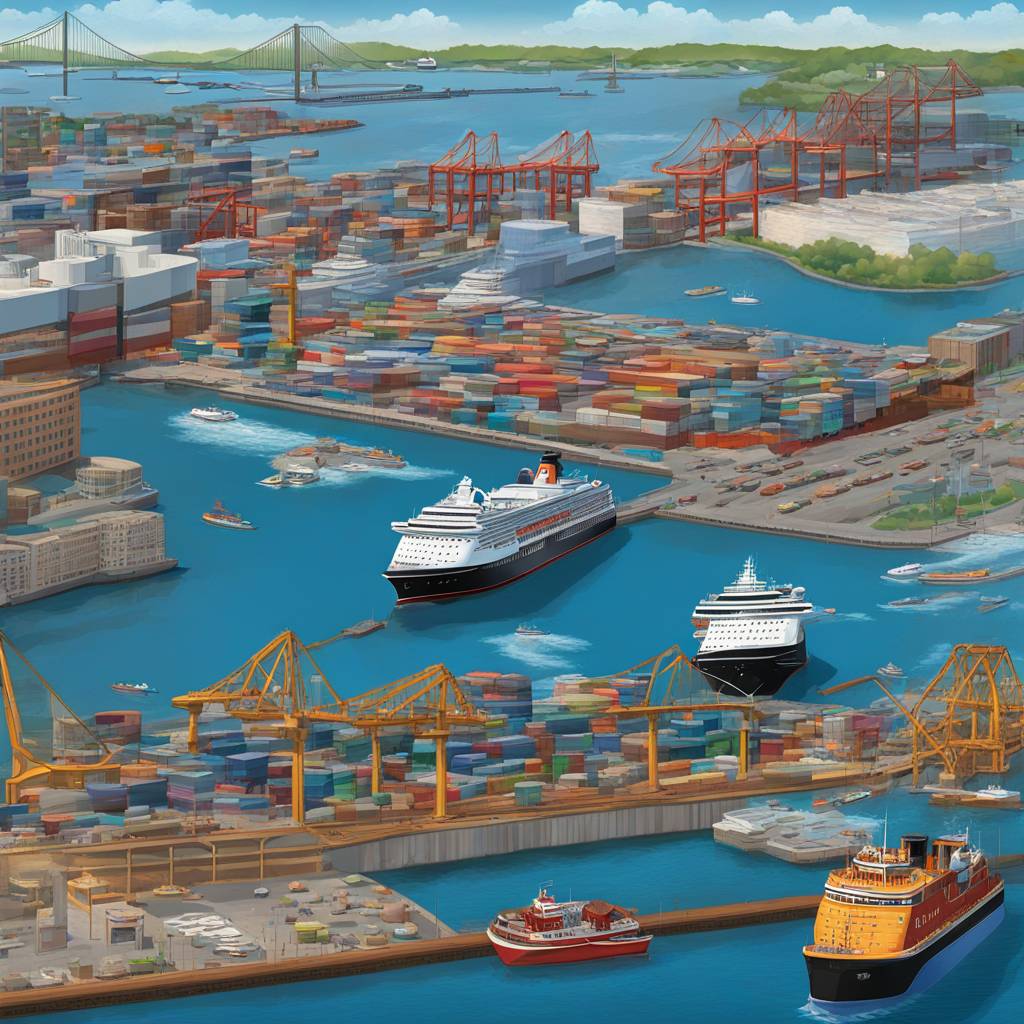The collapse of the Key Bridge in Baltimore has had a significant impact on the local economy and supply chains along the US East Coast. The bridge collapsed after a container vessel collided with one of its supports, causing vessel traffic to be suspended indefinitely. Maersk, a Danish shipping giant, has decided to omit Baltimore from its services until the area is deemed safe for passage. This could lead to delays and rerouting of cargo through other nearby ports.
The Port of Baltimore, being a major hub for vehicles, containers, and commodities, plays an important role in the transportation of goods along the East Coast. With the suspension of vessel traffic, there may be potential delays in trucking operations as traffic is rerouted in the area. The collapse of the bridge threatens to disrupt logistics activity up and down the east coast, leading to potential congestion at alternative ports like Philadelphia, Norfolk, and the Port of New York/New Jersey.
Despite the potential increase in shipping costs and disruptions in the international supply chain, the impact of the bridge collapse on the overall US economy may not be significant. Mark Zandi, chief economist for Moody’s Analytics, stated that other ports have enough capacity to handle the ships that would normally call on Baltimore. However, further disruptions at other East Coast ports could exacerbate the situation and create problems for importers and exporters.
The uncertainty surrounding the timeline for reopening the port adds to the challenges faced by businesses and shipping companies. While it may take years to rebuild the bridge, the focus is currently on removing debris and clearing the channel to allow large ships to pass through. President Joe Biden has pledged federal assistance to expedite the reopening of the port in order to protect the thousands of jobs that depend on its operation.
Baltimore’s port is a vital connector for international trade, handling a significant amount of cargo each year. The disruption caused by the bridge collapse could have widespread impacts on supply chains and the local economy. Companies like Volkswagen, Domino Sugar, and cruise lines operating out of the port are also affected by the suspension of shipping activities. Despite the challenges faced in the immediate aftermath of the collapse, the rebuilding of the bridge could provide an economic stimulus to the city in the long run.
In conclusion, the collapse of the Key Bridge in Baltimore has created significant disruptions in shipping, logistics, and the local economy. While the immediate impact is felt in terms of traffic congestion, delays, and rerouting of cargo, the long-term repercussions remain uncertain. The rebuilding of the bridge and the reopening of the port will be crucial in restoring normal operations and minimizing economic losses. The support from federal authorities, as well as the resilience of businesses and workers in the region, will play a key role in overcoming the challenges posed by this unfortunate incident.


